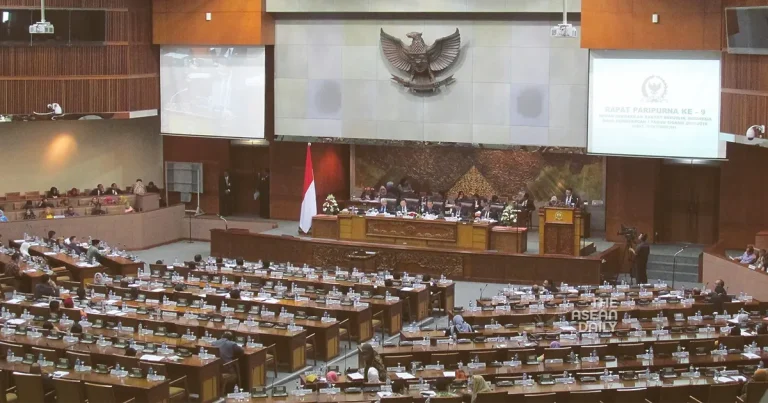16-5-2024 (JAKARTA) Indonesian journalist organizations have sounded the alarm over potential threats to press freedom and investigative journalism, following proposed changes to the country’s broadcasting law. The contentious amendments have ignited a firestorm of criticism, with concerns that the revisions could stifle crucial watchdog reporting and undermine the principles enshrined in Indonesia’s press law.
In a forceful statement on Tuesday, the Press Council voiced its opposition to the amended broadcasting bill, arguing that it contravenes the very tenets laid out in the press law and risks producing substandard journalism in the future.
“Why do we reject this bill? Firstly, because there is an article that prohibits investigative journalism. This contravenes the mandate of the press law,” said Ninik Rahayu, chairwoman of the Press Council, as quoted by local media Tempo. She underscored that the press law explicitly upholds investigative journalism as a cornerstone of professional reporting and a vital component of quality journalism.
The controversial bill, initially proposed in 2020 by lawmakers from the House Commission I, which oversees communications, defense, intelligence, and foreign affairs, was finalized in October 2023 but remained largely shrouded in secrecy until recently. After being debated in the House Legislation Body (Baleg) earlier this year, with minor revisions made on March 27, the latest update was issued on May 16.
While the updated bill aims to revise the 2002 Broadcasting Law to address challenges posed by new media platforms, it has faced backlash from journalist associations who fear it will restrict press freedom. A key point of contention is a provision that prohibits the exclusive broadcasting of investigative journalism content, which the Indonesian press sees as undermining the mandate of the press law, which has guaranteed press freedom since its inception in 1999.
Another controversial provision seeks to expand the authority of the Indonesian Broadcasting Commission (KPI) in resolving journalistic disputes in broadcasting, a role currently held by the Press Council according to the press law. Critics argue this change would undermine the Press Council’s authority to provide its consideration in seeking resolution to public complaints on cases related to press coverage, potentially leading to jurisdictional overlap between the two bodies.
“The draft bill ignores the press law. This shows that the draft (is not aimed at) producing quality journalism in broadcasting,” Ms. Ninik told a press briefing on Tuesday. “Our rejection (of the bill) is also based on the fact that when drafting laws and regulations, steps to harmonize them must also be taken into account to avoid the overlapping of laws.”
Ms. Ninik also criticized the drafting process for ignoring a 2020 constitutional court decision requiring meaningful public participation in legislative processes. “There must be community involvement. It is the people’s right to have their opinions heard and considered,” she added, highlighting that the Press Council was not included in the drafting process.
Meanwhile, Minister of Communication and Informatics Budi Arie Setiadi has also weighed in, questioning the rationale behind provisions that could result in the banning of investigative journalism. “Journalism must be investigative; how can it be banned? Journalism must continue to develop to meet the growing demands of society,” Mr. Budi said, as quoted by Antara on Tuesday.
In response to the public outcry, members of the legislature involved in drafting the bill have stated that it is not finalized and that they are open to input from the public and the journalism community. Supratman Andi Agtas, chairman of the house’s legislation body, assured that the House would address the contentious issues “as soon as possible” and would invite input from the overseeing commission and other stakeholders.
TB Hasanuddin, a Commission I member, acknowledged the need for careful consideration of the bill’s impact on journalism reporting while emphasizing that press freedom should be exercised with caution and serve the public interest.




